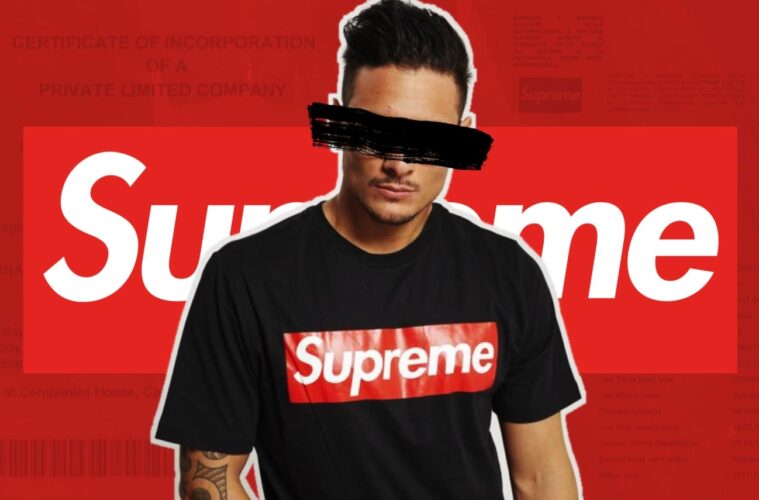They say imitation is the sincerest form of flattery. Though we doubt that Supreme founder James Jebbia feels any sort of positive emotion regarding Supreme Italia. On June 28th Michele Di Pierro and his son Marcello were sentenced to jail by a London court on 2 counts of fraud for operating an international copycat of skate/clothing brand Supreme. In what has been a convoluted exercise in trademark law, Di Pierro and company manufactured and sold garments and accessories branded as Supreme products across the globe; without any association with the actual New York-based skate brand. Often bearing the iconic red-and-white box logo synonymous with Supreme, Di Pierro was fined 7.5 million pounds for the infringement.
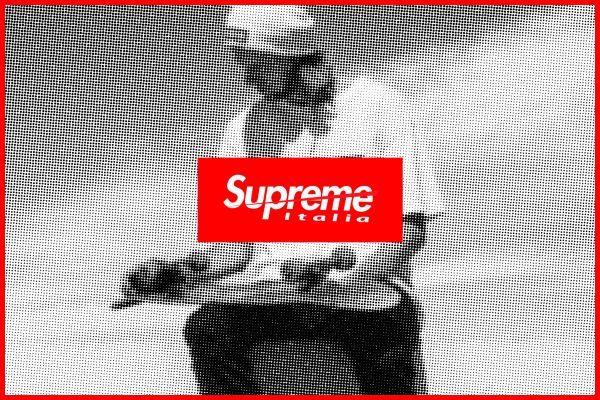
Image Courtesy of NSS Magazine
Anyone born after 2000 has unquestionably heard about Supreme. Founded in 1994 by James Jebbia on Lafayette street in Manhattan, New York, Supreme started as a simple skate/clothing brand that has gone on to take over the entire streetwear landscape. Rising in popularity thanks to limited releases and collaborations with everyone from Nike to Louis Vuitton, during the 2010’s Supreme became arguably the most sought-after brand amongst and youth and hip-hop culture. Despite the notoriety surrounding the brand, they’ve always conducted business in a low-key fashion, with only 11 brick and mortar locations around the world plus a global e-commerce website. As put by the Guardian in 2019, Supreme existed “under the radar of mainstream fashion,” which is what made the takeover possible. To read about a recent collaboration between Supreme and the late fashion designer Emilio Pucci, check out this article from HOLR.
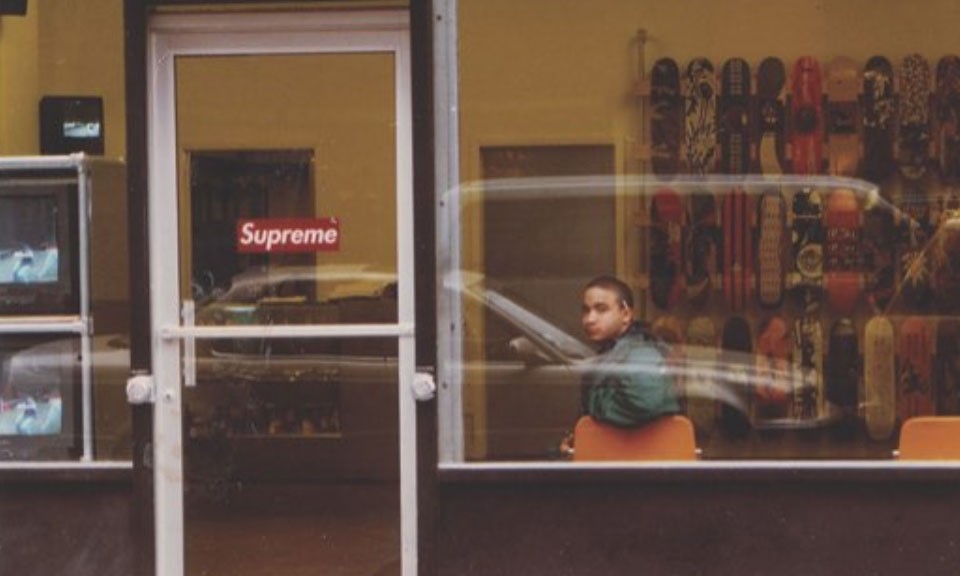
Supreme Store on Lafayette in 1995, Courtesy of Supreme
The organization responsible for the unauthorized Supreme brand was a British holding company launched by Michelle Di Pierro in 2014 called International Brand Firm. As a result of a technicality in trademark law that grants trademark rights to the party who is first to file the trademark rather than use it, IBF was able to snatch up the rights to Supreme to use on clothing and accessories. This technicality is only practiced in certain jurisdictions such as Italy and San Marino, which amongst other counties is where the illegitimate Supreme brand took place. Thanks to a licensing deal provided by IBF, a company named Trade Direct (which operated under the name of Supreme Italia in Italy) was able to produce goods that resembled authentic Supreme apparel as early as 2016.
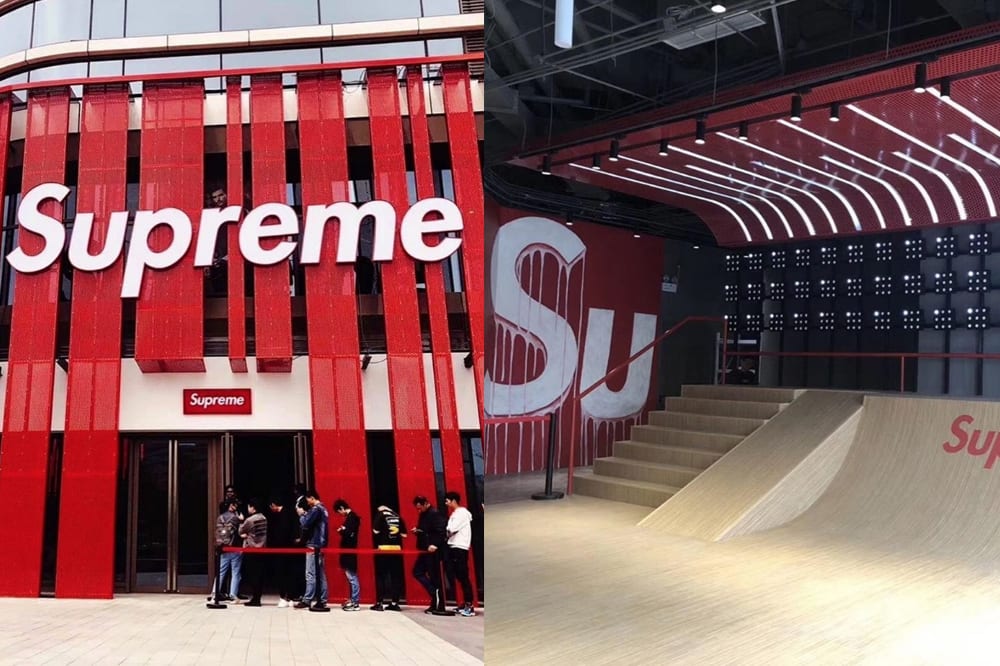
A Supreme Italia Store in Shanghai, Image Courtesy of The Source
The case of Supreme vs. IBF has been so unique that a new term was coined by media outlets covering the remarkable multi-jurisdiction case; “Legal Fakes”. According to Italian trademark attorney Silvia Grazoli of Bugnion SpA, the term means “a legal copy of a brand, where ‘legal’ indicates that the fake brand is a trademark registered in a country where the original mark has yet to be launched,”. Things even got so extreme during the streetwear brand’s prosecution against the knock-off brand, law enforcement officials were given marching orders to rupture factories in San Marino that were producing the counterfeit goods. In 2018 a total of 120,000 items were seized during the raid, all bearing the name and famous Futura heavy Oblique font box logo of Supreme.
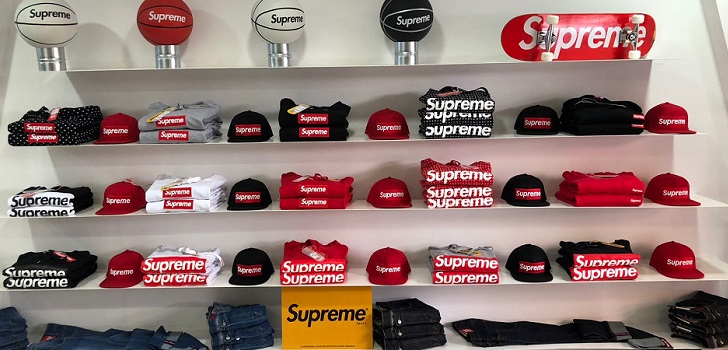
Image Courtesy of Irenebination
According to Bloomberg, neither Michele nor Marcello appeared in court and “An arrest warrant was then re-issued following the sentencing”. Both were sentenced to a combined total of 11 years in prison after a jury found that pair guilty after 4 hours. Summed up by London Judge Martin Beddoe, the pair “hijacked every facet of the company’s identity and plagiarized it,”. This whole case had been truly outrageous, as this was not simply a vendor selling bootlegs out of a suitcase on a street corner, but rather a multi-million dollar operation on a global scale.


